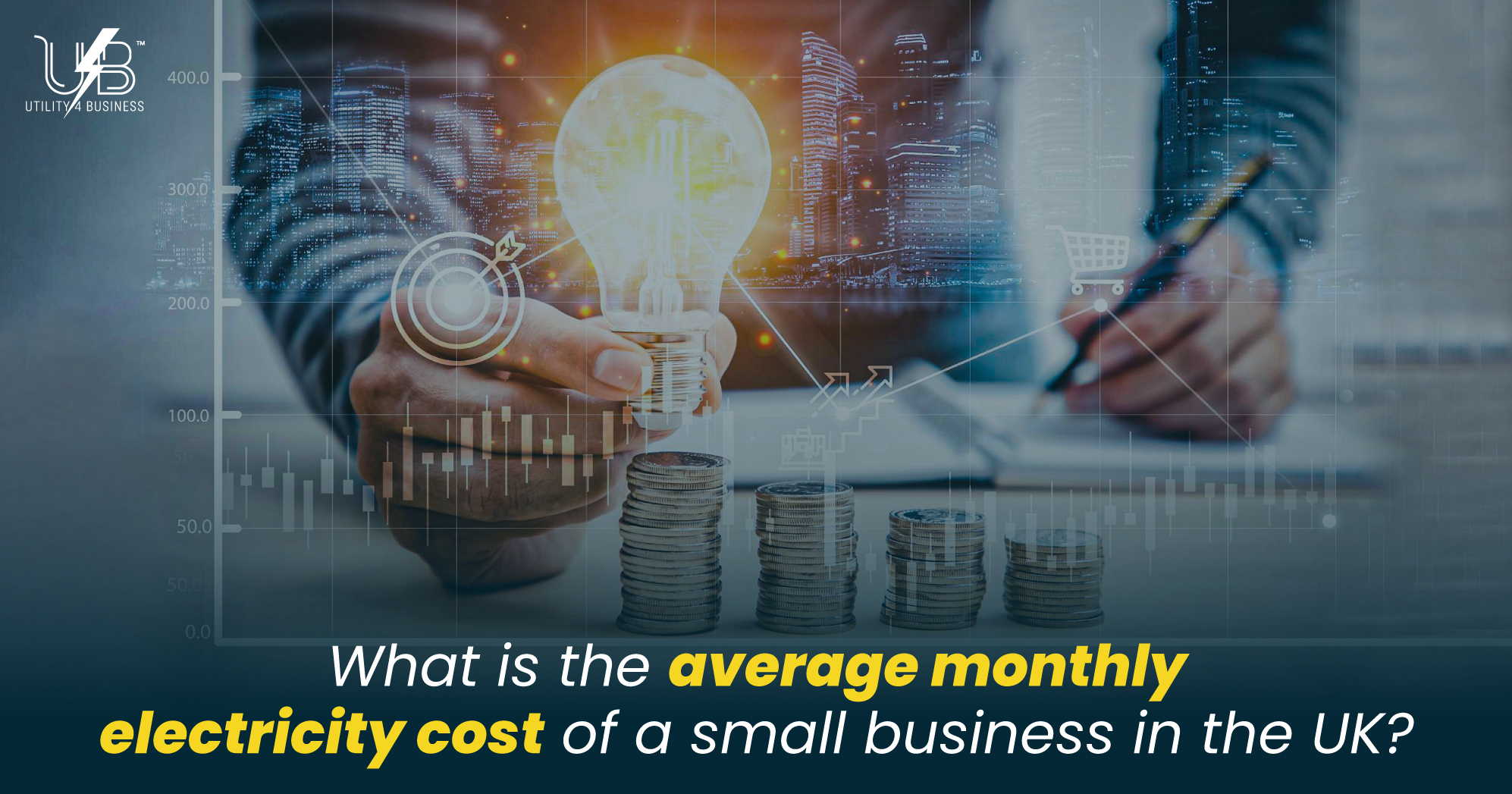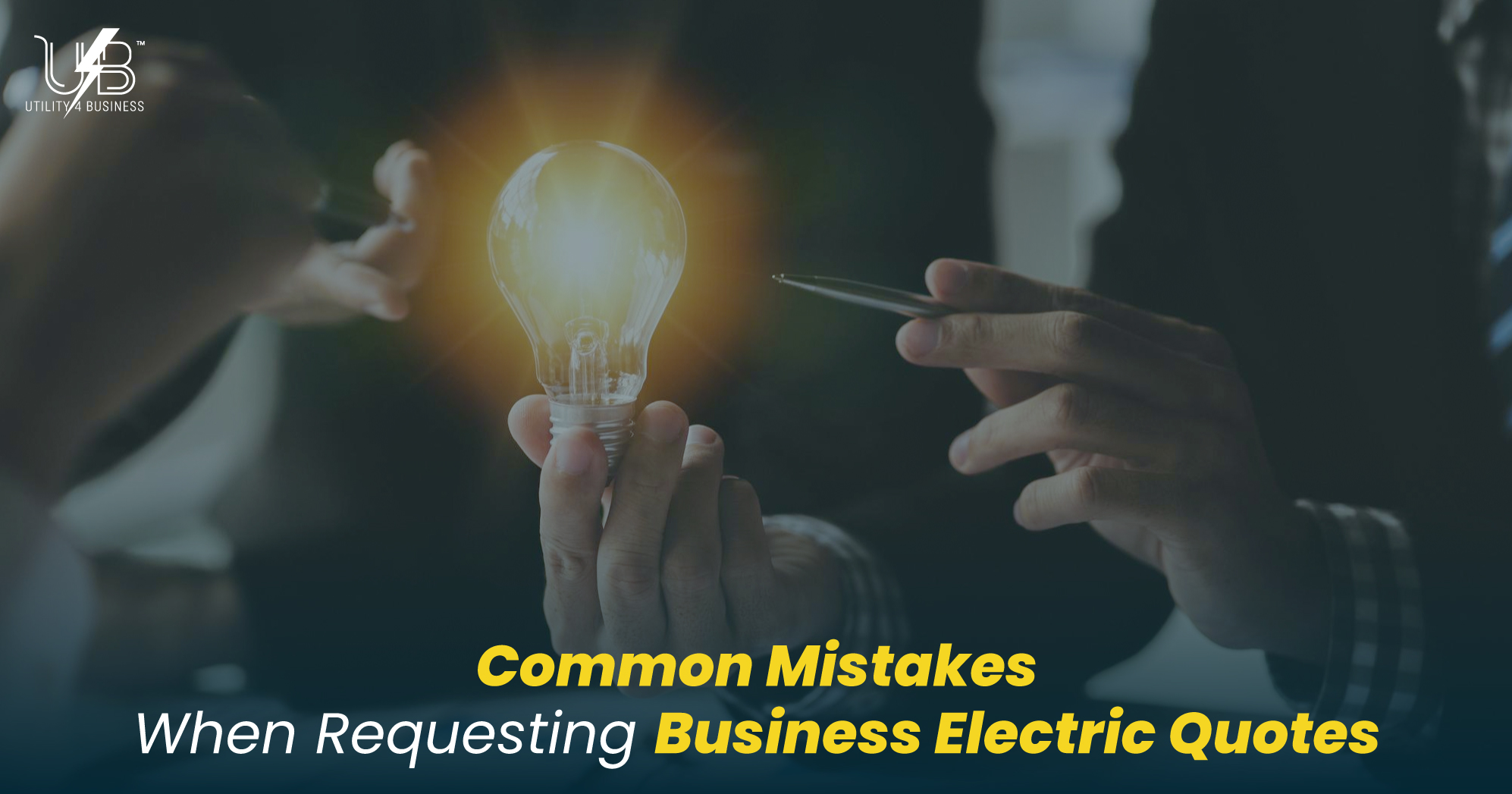What is the average monthly electricity cost of a small business in the UK?
UK Small Business Electricity Costs

Bills change with usage, unit rate, standing charge, region, taxes, and the contract on the meter. There is also no business price cap like the one that applies to households, so quotes move with the market. The only honest answer is a range, and a clear way to work it out for your site.
What “average” really means for small businesses
Small sites use very different amounts of electricity. A micro outlet might run lights, a fridge, and a laptop. A small bakery or salon will run ovens or dryers for long hours.
Prices also change throughout the year. Government data shows how non-domestic prices track wholesale shifts. In early 2025, the average electricity paid by manufacturers was 18.53 p/kWh before taxes and levies. That is not a retail quote for a café or office, but it shows the market trend that filters through to small sites when contracts renew.
The parts of a monthly bill
A small business electricity bill has three main moving parts. The unit rate is the price per kWh. The standing charge is a daily fee for metering and networks. Then taxes and levies sit on top. VAT is 20% for most businesses. Some sites pay the reduced 5% VAT if they qualify under the de-minimis rules or have charitable use. The de-minimis rule for electricity is 33 kWh per day or 1,000 kWh per month at a single site. The Climate Change Levy (CCL) also applies in most cases. The main electricity rate is £0.00775 per kWh in 2025, rising to £0.00801 in 2026.
There is no Ofgem price cap for business customers. That means the unit rate and standing charge come from your negotiated contract, your meter type, your load shape, and your postcode. Two similar sites can pay different rates on the same day. This is exactly why a business electricity comparison or a compare business electricity check matters before renewal.
A quick market snapshot
Public statistics track the direction of travel rather than a live quote. They observe that while non-domestic electricity prices fell from the highs of 2023 and then stabilised in the 2024–25 year, they are still above pre-crisis levels. That pattern matches what owners see when rates refresh at renewal. It explains why a fresh electricity comparison for business often unlocks savings even when usage stays flat.
Typical usage to anchor an “average” monthly cost
To turn annual usage into a monthly estimate, divide by twelve. A micro site at 10,000 kWh per year uses about 833 kWh per month. A small site at 20,000 kWh per year uses about 1,667 kWh per month. Once those figures are set, the rest is clean arithmetic with today’s unit rate, the standing charge, CCL, and VAT.
How to estimate your monthly cost
Start with a recent bill and note the annual kWh. Pick a realistic unit-rate band from current quotes. Add your daily standing charge. Add CCL at the current per-kWh rate. Then add VAT.
The formula is simple: Monthly cost ≈ (Monthly kWh × Unit rate) + (Standing charge × days) + CCL + VAT. VAT is usually 20%, unless the site qualifies for 5% under the rules above. CCL is £0.00775 per kWh in 2025.
Worked examples you can lift into a quote request
Here are plain, rounded examples to show the maths. These are not live quotes. They use 25 p/kWh for electricity, a 50p/day standing charge, CCL at £0.00775/kWh, and VAT at 20%.
Micro site at 10,000 kWh/year
Monthly usage is roughly 833 kWh. Energy charges come to about £208. The standing charge adds about £15 for a 30-day period. CCL adds about £6.46. The subtotal is about £229.79. VAT at 20% adds £45.96. The estimated monthly bill lands close to £275.75.
Small site at 20,000 kWh/year
Monthly usage is roughly 1,667 kWh. Energy charges come to about £416.67. The standing charge adds about £15 for a 30-day period. CCL adds about £12.92. The subtotal is about £444.58. VAT at 20% adds £88.92. The estimated monthly bill lands close to £533.50.
A small swing in the unit rate shifts the total in a clear way. At 23 p/kWh, the same small site above would sit near £493 per month. At 27 p/kWh, it would sit near £574 per month. Standing charges also vary by meter and region. Moving from 50p/day to 80p/day adds about £9 a month; dropping to 40p/day trims about £3 a month.
Why do two similar businesses pay different amounts?
Location matters because distribution costs change by region. Meter type matters because some meters settle on a single rate while others settle half-hourly or by day/night. Contract length and credit checks affect the unit rate and the standing charge. Load shape matters too. A site that runs most of its usage at night can get very different pricing from a site that peaks at 5–7 p.m. There is also the tax layer. Some sites pay 5% VAT under the de-minimis rule; most pay 20%. Charities and certain non-profit uses can also qualify for reliefs. CCL applies at the per-kWh rates set out above. These moving parts explain the spread you see when running a business electricity comparison or a business energy comparison for electricity with live quotes.
How today’s figures compare with recent years
Non-domestic electricity prices increased sharply during the energy crisis, declined through 2024, and then stabilised in 2025 at levels that remain above long-run average levels. Government releases and datasets show the easing in cash terms while also reminding readers that businesses renew at different points, so changes appear at different times on bills. This is another reason to check rates before your renewal window closes.
Practical ways to bring the monthly bill down
Contract timing can make a material difference. Securing a renewal during a calm market week can beat waiting until the last few days of a contract. Fixed terms bring bill certainty month to month. Flexible deals can suit larger sites with active oversight. Metering data is a quick win. Half-hourly or smart data can reveal out-of-hours drain and poor overnight settings. Simple steps such as LED upgrades, controls, and HVAC tuning often pay back fast when unit rates sit in the mid-20s p/kWh. For some rooftops, solar PV now offsets daytime kWh at a useful scale. Always check VAT and CCL status. Sites under 1,000 kWh per month at a single location may qualify for 5% VAT, and certain uses qualify for CCL reliefs.
Conclusion
There is no single “average” monthly bill for every small business in the UK. Costs turn on a few levers: how many kWh the site uses each month, the unit rate agreed in the contract, the standing charge, VAT and the Climate Change Levy. Usage patterns, meter type and region add further variation. The most reliable way to set expectations is to start with recent kWh, apply a realistic unit-rate band, include the standing charge for the billing period, then add taxes and levies. That method gives a clear, defensible estimate for planning and cash flow.
With markets still sensitive and no business price cap, reviewing contracts before renewal is essential. A fresh business electricity comparison ensures both unit rate and standing charge are competitive for the meter and postcode. Utility4Business can compare business electricity options against your actual usage and provide an electricity comparison for businesses that focuses on total monthly cost, not headline rates. The result is a clearer forecast, less risk at renewal, and a contract that better fits the way the site uses power.
The fastest route to a fair monthly cost is simple. Share a recent bill with Utility4Business and ask for a business electricity comparison across the whole market. Utility4Business checks your usage, meter type, and region in one go, then returns clear options with both unit rates and standing charges shown.
Find This Article Helpful? Share It Now!
At Utility4Business, we offer top-notch customer support and business utility solutions for businesses across the UK. Consider sharing this article and helping others discover how our expertise can add value to their business success.

Read Our Latest Posts
Explore our latest blog posts and learn how Utility4Business can support your business growth with tailored utility solutions and services. Stay ahead of the curve with the latest information from industry experts and take advantage of our user-friendly comparison services to find the best business deals.


Get Connected
At Utility4Business, our team of experts can help you figure out the highest-value business utility deals that will help your business grow over time.

